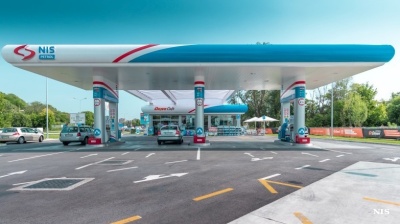Fresh speculation that the Kremlin is tampering with Kazakhstan’s oil exports has arisen with an announcement that shipments of flows from the CPC pipeline have been disrupted for the fourth time this year.
Reuters reported on August 23 that the disruption at the pipeline terminus in Novorossijsk on Russia’s Black Sea coast could run to at least a month but added that, in the meantime, one of the facility’s three export berths still functional would work in “intensive mode” and continue to transfer 60-70% of total capacity.
Kazakhstan is dependent on the CPC pipeline—run by the Caspian Pipeline Consortium—for the export of around four-fifths of its crude oil. There continues to be a lot of industry talk that post-Soviet Kazakhstan, which has stopped well short of expressing any support for Russia’s invasion of Ukraine, is being taught a ‘who’s boss’ lesson by Moscow, which can also exert control over the Novorossijsk export platforms as part of a manipulation of world oil markets, should it so wish. The terminal handles about 1% of global oil supply.
CPC reported damage at "the attachment points of underwater sleeves to buoyancy tanks" as the reason for the suspension of oil loadings at two of the three single mooring points (SPMs) at the Novorossijsk terminal. It said the damage may have been caused by "exceptionally difficult weather conditions" last winter.
The three disruptions to oil shipments from Novorossijsk that preceded this latest one involved the shutting down of two SPMs due to alleged storm damage in March; export suspension attributed to mine-clearing operations on the seabed in June; and alleged oil spill concerns that led to a Russian court ordering CPC to halt shipments for 30 days. The court order was, however, quickly reversed on appeal and never came into force.
The latest CPC disruption comes amid Russia’s plans to close down the Nord Stream gas pipeline for three days between August 31 and September 2, in a move that will put further strain on the European gas market.
'Cracks in hoses'
Russia’s TASS news agency reported that while performing scheduled maintenance on the two closed SPMs, divers discovered cracks in subsea hose attachments to buoyancy tanks. CPC said it then contacted the SPM manufacturer and an organisation that supervises the safe operation of equipment, the ABS classification society. It said they "strongly recommended that the operation of the SPMs should be suspended until the buoyancy tanks are replaced". CPC said it was currently looking for an entity to replace the buoyancy tanks.
No timeline for the relaunch of the SPM operations has been provided.
CPC loadings have not been affected as yet as the CPC pipeline saw lower than expected supply amid maintenance works on two major Kazakh oil fields, Tengiz and Kashagan.
Tengizchevroil (TCO), which represents Chevron and Exxon in Kazakhstan's giant Tengiz project, told Reuters it was aware of temporary maintenance at CPC and that its oil exports and output on its Tengiz oilfield currently stood uninterrupted.
TCO has a lower output plan for August-September on its Tengiz oil field due to planned maintenance.
Exploring perspectives on the situation at the Novorossijsk terminal, Eurasianet noted comments from Askar Aisautov, a civil engineer in Almaty who specialises in the construction of pipelines, posted on Facebook.
“In my opinion, the work of the CPC in 2022 is like litmus paper,” Aisautov wrote. Based on whether the pipeline is working, “you can judge the magnitude of tension in relations between the Kremlin and Akorda [the seat of the Kazakh presidential administration]”, he added.
Eurasianet also reported that, writing on Telegram, Nurlan Zhumagulov, head of the Union of Oil Service Companies of Kazakhstan, a lobby group, offered an alternative explanation for the terminus troubles, namely the corrosive effects of corruption.
A year ago, he pointed out, small investigative newspaper Nasha Versiya reported that in March 2021, CPC replaced its former contractor, Rotterdam-based Smit Lamnalco, which had been servicing the marine terminal for 12 years, with local company Transneft-Service, following an opaque tender. Nasha Versiya reported that the new contractor, despite minimal experience, was charging 30 times more for its services. It argued that it was funnelling proceeds offshore. In August 2021, a spill at the terminal released at least 70 tonnes of oil into the Black Sea, CPC confirmed; WWF Russia said the spill was no less than 100 tonnes.
Pointing the finger at “lawlessness at the CPC,” Zhumagulov concluded that “geopolitics and the storm” were less likely culprits for the Novorossijska stoppages than “corruption and the irresponsibility of the Russian contractor.”
The CPC’s main shareholders are Transneft (24%), Kazakh state-run oil and gas producer KazMunayGas (19%), Chevron Caspian Pipeline Consortium Company (15%), LUKARCO (12.5%), Mobil Caspian Pipeline Company (7.5%), Rosneft-Shell Caspian Ventures (7.5%) and Eni International (2%).
News

Nigeria's Heirs Energies' CFO on powering growth via sustainable, indigenous-led development
NewsBase speaks exclusively to Samuel O. Nwanze, Executive Director and Chief Financial Officer of Nigerian indigenous integrated oil and gas company Heirs Energies.

Brazil's Lula "horrified" as Rio police raid death toll reaches at least 130
Brazilian President Luiz Inácio Lula da Silva expressed shock at the fatalities from a massive police operation targeting Rio drug gangs that left scores dead, while residents and rights advocates accused authorities of summary executions.

Nigeria's NNPCL weighs technical equity partnerships to revive idle state-owned refineries
NNPCL is reviewing options to bring the Port Harcourt, Warri and Kaduna refineries back into meaningful operation, possibly by bringing in technical equity partners to upgrade or repurpose units.

Situation critical in Ukraine’s frontline key logistics hub Pokrovsk
Russian infantry units have breached Ukrainian defensive lines and entered the key eastern logistics hub of Pokrovsk, sparking intense street fighting and threatening to encircle Ukrainian forces as the situation becomes "critical."

.jpg)

